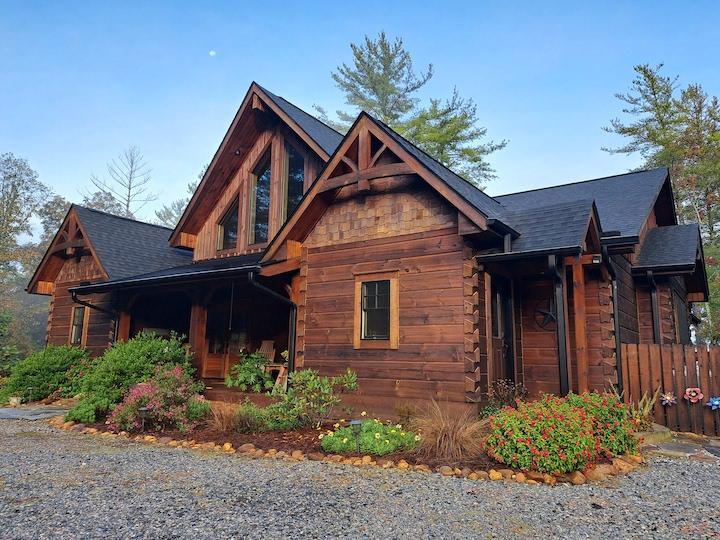Why is Kiln Drying Important?
Uniformity and stability. Kiln-dried logs are “pre-shrunk” before milling to a final profile to create a uniform and stable log wall system with less settling and tighter joints. In fact, throughout much of the United States, our log wall system will qualify as a “non-settling” system. However, years of experience have taught us how to create a building method to account for minor changes in the wood.
Fewer checks. Careful drying in a controlled environment minimizes checking (cracking), which occurs in the kilns, before milling and during final construction.
Grading Accuracy. After kiln-drying the logs, trained inspectors can grade defective logs for exclusion. Logs selected for use in your home package are stamped with a TPI standard of LogWall-40.
Kills Pests. Heat from kiln-drying will destroy any fungi that cause wood decay, as well as any insects, their eggs or larvae.
Stops Sap. Most pitch in the wood is crystallized during kiln drying, preventing “sap” from seeping to the surface after the home is constructed.
Smooth. Durable Finishes. Interior and exterior finishes can be applied immediately following construction for more convenient and immediate protection. Applications may absorb deeper and last longer.
Lighter Logs. It’s estimated that 10,000 pounds of water are removed from the typical home, significantly reducing the weight of the logs. Two people can handle even the longest logs during the construction process.

